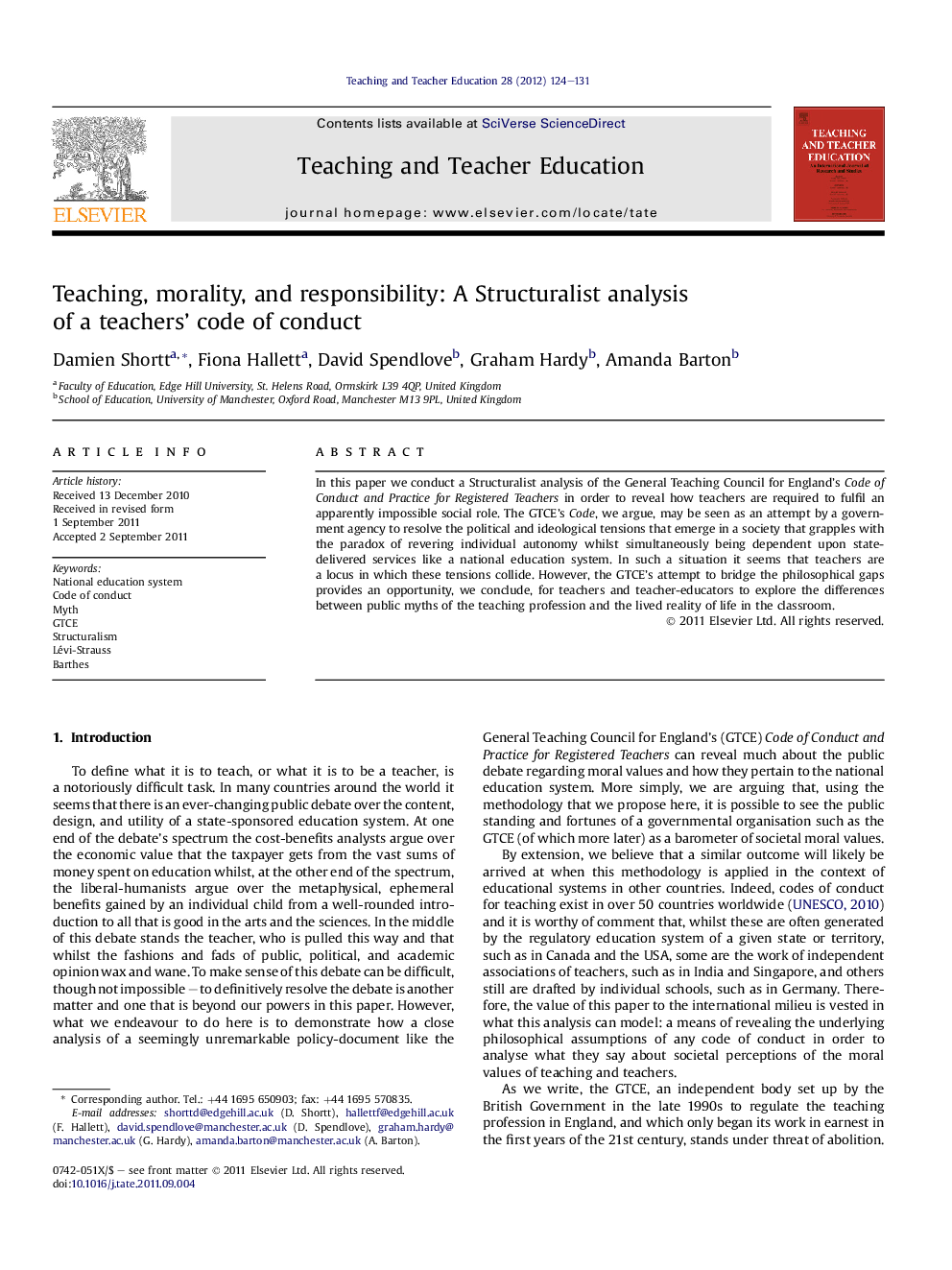| Article ID | Journal | Published Year | Pages | File Type |
|---|---|---|---|---|
| 374178 | Teaching and Teacher Education | 2012 | 8 Pages |
In this paper we conduct a Structuralist analysis of the General Teaching Council for England’s Code of Conduct and Practice for Registered Teachers in order to reveal how teachers are required to fulfil an apparently impossible social role. The GTCE’s Code, we argue, may be seen as an attempt by a government agency to resolve the political and ideological tensions that emerge in a society that grapples with the paradox of revering individual autonomy whilst simultaneously being dependent upon state-delivered services like a national education system. In such a situation it seems that teachers are a locus in which these tensions collide. However, the GTCE’s attempt to bridge the philosophical gaps provides an opportunity, we conclude, for teachers and teacher-educators to explore the differences between public myths of the teaching profession and the lived reality of life in the classroom.
► We conduct a Structuralist analysis of a teachers' code of conduct. ► The GTCE's Code of Conduct is an important sociological document. ► Attempts to regulate teachers reveal much about public views of the profession. ► This Structuralist methodology can be usefully applied to similar policy documents.
